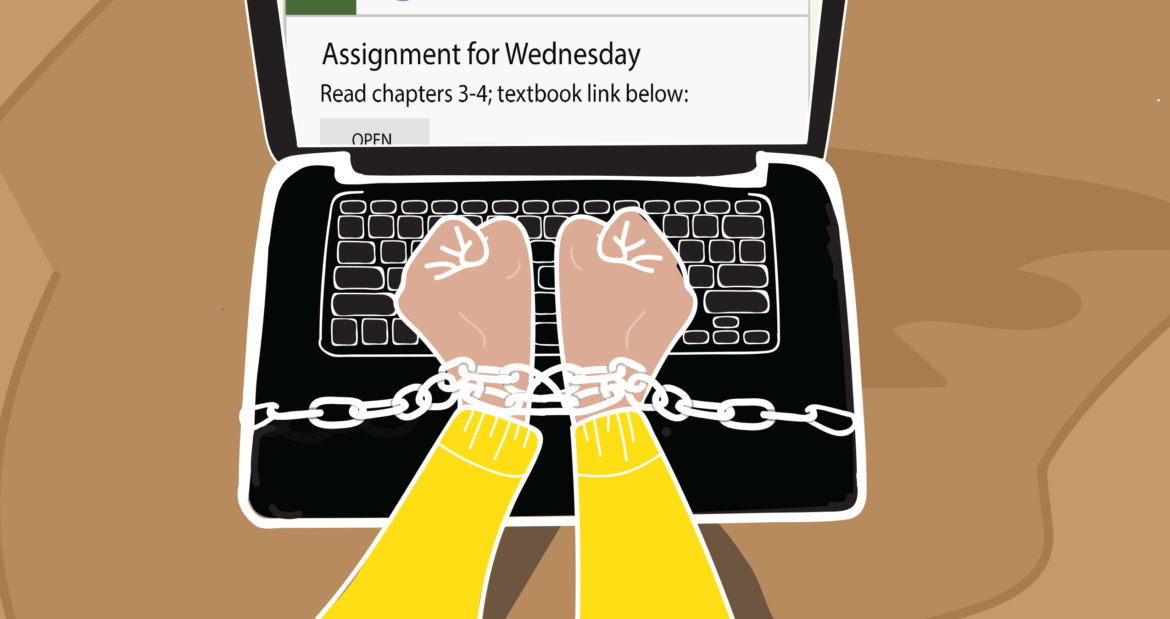Personal learning devices (PLDs) place a greater emphasis on technology than on more traditional approaches to education, which can be harmful, especially to younger students.
Managing Editor Delia Adamson shares her experience with Personal Learning Devices.
As I look around the room, everyone is on their computer. Everyone is focused. The room is eerily silent, except for an incessant clicking of the keyboard.
Click. Click. Click.
My freshman year at Clarke Central High School was when I — along with the Clarke County School District — was introduced to Personal Learning Devices. The 2014-15 freshman class was the first to implement the 1:1 initiative set forth by the CCSD with the hope that by August of 2016, every student in the district would have these devices. Looking back, they were large, clunky computers with Wi-Fi capabilities slower than molasses in January and, on top of that, they took up the majority of my backpack space.
I was not a fan.
During my sophomore year, I was introduced to Google Classroom. A new, seemingly magical tool designed to make submitting assignments easier, as well as 100 percent paperless with the help of our new handy-dandy PLDs.
In retrospect, I thought that Google Classroom was great. I could do everything I needed online. I took notes online, submitted all my assignments online and even had access to virtual textbooks with the click of a button. It wasn’t until I volunteered as a guest reader at Barrow Elementary School that I realized the major impact these devices had on students, especially those of such a young age.
Why did a first grader need a computer?
Immediately my mind raced back to my elementary school days. Back then, I completed written assignments, took notes with paper and pencils and physically opened textbooks as my sole source to get information.
This 1:1 initiative, while convenient, is taking authentic learning skills away from students by making them rely on computers and other forms of technology as the primary outlet for their education.
Instead of textbooks, students receive computers. Instead of handed out assignments, students receive links posted on a board.
Instead of textbooks, students receive computers. Instead of handed out assignments, students receive hyperlinks posted on a board. Learning how to write in cursive transitions to typing on a keyboard and important fundamental skills are lost in translation.
A student should not be taught to depend on their computer in order to complete their work, or rather feel chained to their computer.
It is obvious we live in a world that is very dependent on technology. Smart devices, televisions and laptops are around us constantly, so it is inevitable that technology follows us into the schoolhouse.
But it should not dominate the classroom.
